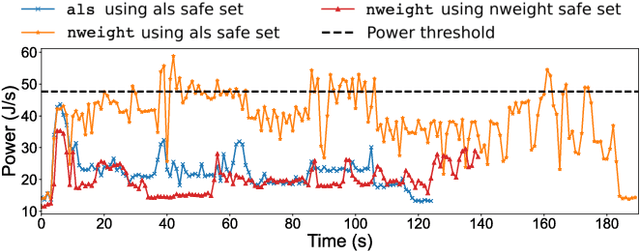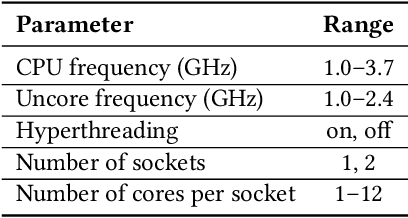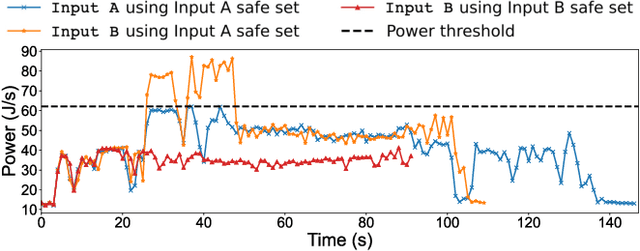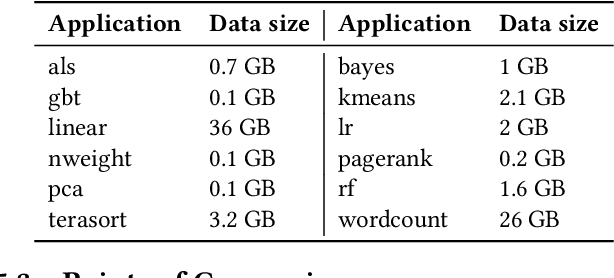SCOPE: Safe Exploration for Dynamic Computer Systems Optimization
Paper and Code
Apr 22, 2022



Modern computer systems need to execute under strict safety constraints (e.g., a power limit), but doing so often conflicts with their ability to deliver high performance (i.e. minimal latency). Prior work uses machine learning to automatically tune hardware resources such that the system execution meets safety constraints optimally. Such solutions monitor past system executions to learn the system's behavior under different hardware resource allocations before dynamically tuning resources to optimize the application execution. However, system behavior can change significantly between different applications and even different inputs of the same applications. Hence, the models learned using data collected a priori are often suboptimal and violate safety constraints when used with new applications and inputs. To address this limitation, we introduce the concept of an execution space, which is the cross product of hardware resources, input features, and applications. To dynamically and safely allocate hardware resources from the execution space, we present SCOPE, a resource manager that leverages a novel safe exploration framework. We evaluate SCOPE's ability to deliver improved latency while minimizing power constraint violations by dynamically configuring hardware while running a variety of Apache Spark applications. Compared to prior approaches that minimize power constraint violations, SCOPE consumes comparable power while improving latency by up to 9.5X. Compared to prior approaches that minimize latency, SCOPE achieves similar latency but reduces power constraint violation rates by up to 45.88X, achieving almost zero safety constraint violations across all applications.
 Add to Chrome
Add to Chrome Add to Firefox
Add to Firefox Add to Edge
Add to Edge